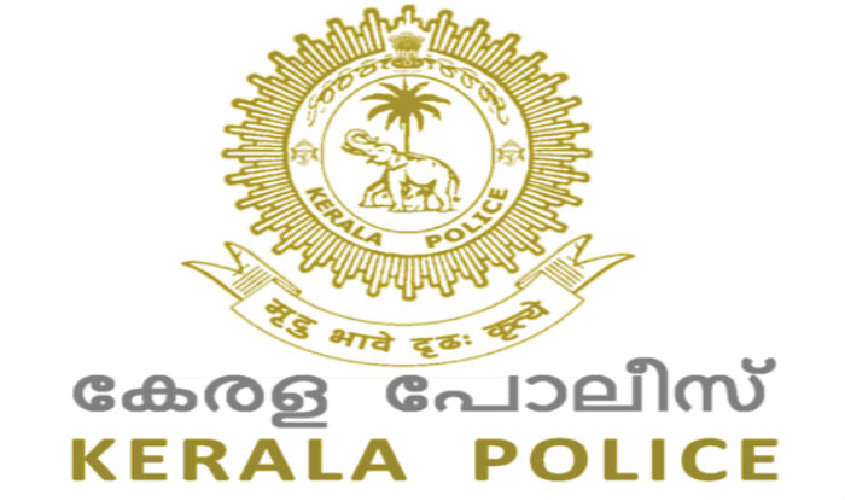The police has been accused of human rights violations.
A CBI special court delivering capital punishment to two Kerala police officers for the brutal killing of an innocent 26-year-old youth in custody 13 years ago could not have come at a more appropriate time. This is perhaps for the first time in the country that two serving senior civil police officers have been sentenced to death. The court has also awarded three-year imprisonment to two retired SPs and one Deputy SP “for attempting to cover up the crime by destroying evidence and falsifying police station records”. The judgement has come at a time when at least 13 people have died under questionable circumstances while in police custody in the state in the past two years. Another 36 people have been tortured by law enforcement authorities ever since the CPM-led Left Front came to power in May 2016. Kerala is still reeling under the shock of the arrest and death of another 26-year-old taken into custody by mistaken identity in Varapuzha, Kochi, in central Kerala in April this year. The state government has been accused of shielding a top police official, who had reportedly acted at the behest of the CPM leadership of the area, by refusing to hand over the case to CBI, a demand still being pursued by the deceased man’s family. Instead of taking action against the officer, the party has been trying to settle the case by offering Rs10 lakh to the family and promising a job to the young widow. Still the Chief Minister, Pinarayi Vijayan, who is also the Home Minister, keeps on assuring the state that everything is all right with his police force.
It was in 2005 pre-Onam, the most important festival in Kerala, that the young Udayakumar succumbed to third degree measures in the Fort police station of the state capital Thiruvananthapuram. A rag- picker working for a scrap dealer, Udayakumar was picked up from a nearby park on charges of petty theft. During the Emergency, Kerala police’s method of torturing by rolling a wooden pin from person’s waist to the toes had become notorious. The most famous victim of that time was a young engineering student, Rajan, who was accused of being a Naxalite. Rajan vanished without a trace and the futile attempts of his grief-stricken father, a professor, for more than two decades to trace at least the body of his son still haunts a generation back in Kerala. Udayakumar too was meted out the same treatment while being questioned about Rs 4,000 in his possession, which later turned out to be the Onam bonus given by his employer. After his death, police tried to cover up the torture by filing a fresh FIR. The case was finally handed over to the CBI following a public outcry and the legal battles of a persistent mother. It was the CBI that brought out the heinous role of senior police officials in the cold-blooded murder. Statements of three women constables present at the station that they had seen the accused officers trying to revive a slumping Udayakumar turned crucial. The same night the police rushed him to hospital, where he was pronounced brought dead. “Law enforcers are the protectors of life and property, and no death dealers,” CBI judge Nazir said while handing down the death penalty to the two police officers. They had killed an innocent in their custody. “They deserve no clemency,” the judge ruled, remarking that the crime fell in the rarest of the rare category that deserved death. Udayakumar’s 67-year-old mother, Prabhavathiamma, who was present in the court said, “They killed my son during an Onam 13 years ago. Now they will spend their Onam in prison. No court will pardon them. They killed an innocent man. God has heard a mother’s prayer.”
During the past two years, Kerala police have been accused of many human rights violations and public resentment has been building up against them. Initially, the CM tried to play down those instances by saying they were isolated incidents and the force was suffering from the hangover of the previous regime. Then the blame was shifted to the growing saffronisation of the force. But once isolated incidents started recurring, it was clear that the rot is deep within. Following Sreejith’s murder and the subsequent political inaction against the accused had brought to light the dark side of the force in Kerala. According to a confidential report by the current DGP, Crime, which was submitted to the state police chief months ago, a total of 1,129 officers belonging to the Kerala police have criminal cases slapped against them, many of them grievous ones. No action has so far been taken against any of them. Not only that, many of them enjoy political patronage too. They continue to hold plum posts. The crime graph has been steadily rising, with political murders at an all time high ever since the current DGP, Loknath Behera was brought in by the new regime. The CM had appointed a disgraced former DGP as his advisor. Politicisation of the police was in the open, for all to see, when a whole contingent of policemen from CPM stronghold Kannur attended a police convention wearing red shirts and raising revolutionary slogans in the presence of the Chief Minister and DGP. Incidentally, on the day of the judgement the courtroom was teeming with policemen in mufti who had come to show solidarity with their comrades in arms! Confidence over the police force among the general public is at its lowest in present day Kerala. Instead of patronising lenient policemen, it is time for the government to restore that lost image of the police in the state. The death sentence is a pointer towards that.

